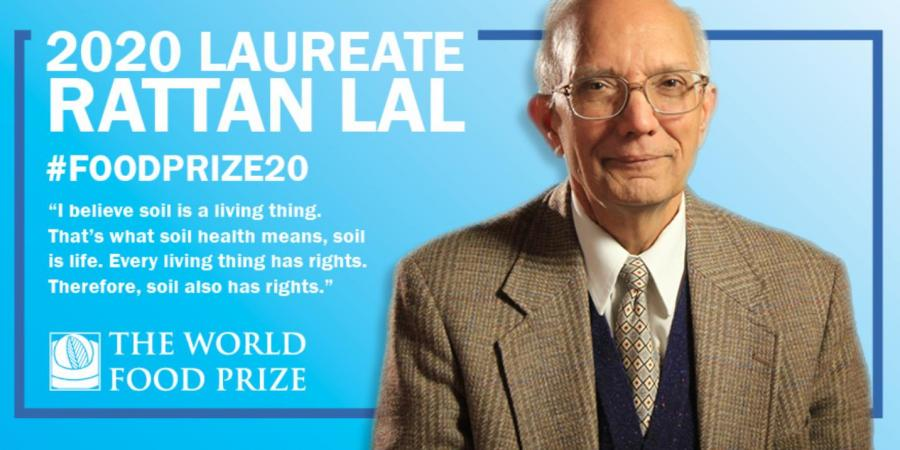Social Justice
Road to Zero Hunger
- 16 Oct 2020
- 8 min read
This article is based on “The road to zero hunger by 2030” which was published in The Hindu on 16/10/2020. It talks about the significance of Nobel Peace Prize 2020 to the World Food Programme and some measures to achieve the zero hunger target.
Several poor countries have suffered a severe setback to their developmental aspirations due to the Covid-19 pandemic. But, the pandemic, more strikingly, poses a threat to food security and agricultural livelihoods. It compounds the threats already faced by 690 million people around the world.
In India, the Covid-19 containment measures have brought out the multi-dimensionality of India’s food challenges.
Therefore, As countries begin to develop and implement Covid-19 recovery plans, it is also an opportunity to adopt innovative solutions based on scientific evidence so they can build back better and make food systems more resilient and sustainable.
In this context, countries can draw inspiration from the World Food Programme (WFP) which has been awarded with Nobel peace prize, 2020.
Significance of Nobel Peace Prize to WFP
- This year’s Nobel Peace Prize to the World Food Programme (WFP) is a recognition of its role in combating hunger and malnutrition across the developing world.
- According to the WFP, 132 million more people could become malnourished as a consequence of the pandemic.
- This counts for a major world-wide catastrophe and unless the conscience of the world is aroused, we will be condemning vast pools of humanity to living in wretchedness and deprivation.
- It is also a warning that the novel coronavirus pandemic is reversing the substantial gains made in the fight against poverty.
- Thus, the Nobel Prize to the WFP will hopefully nudge collective conscience across the globe to come together and relieve this looming humanitarian crisis.
Associated Challenges In Combating Global Hunger
- Retreat of Multiculturalism: Challenges like Global Hunger are cross-domain but also cross-national in character, and hence demand greater multilateral cooperation in order to succeed.
- However, paradoxically as the salience of cross-national and global challenges has significantly increased, nation states are less willing to cooperate and collaborate in tackling them.
- Threat of Climate Change: Climate change continues to be a real and potent threat to agrobiodiversity, which may impact everything from productivity to livelihoods across food and farm systems.
- Intensified food production systems with excessive use of chemicals and unsustainable farming practices cause soil degradation, fast depletion of groundwater table and rapid loss of agro-biodiversity.
- Inter-Linked Challenges: Food, energy and water security are inter-linked with strong feedback loops.
- Enhancing food security may lead to diminished water and energy security.
- It will also have collateral impact on health security.
Case of India
Positive Side —Tackling of Food Crisis During Pandemic
- India has gone from being a net importer to a net exporter of food grains. This strength has been evident through the pandemic.
- Central and State governments were able to distribute around 23 million tonnes from India’s large domestic food grain reserves, during lockdown, through the Public Distribution System (PDS).
- Thereby, providing much-needed emergency assistance to families around the country.
Flip Side — Prevalence of Malnutrition & Threat to Food Security
- Prevalent Malnutrition: Even as malnutrition in India has notably declined over the past decade, the Comprehensive National Nutrition Survey 2016-18 revealed that over 40 million children are chronically malnourished, and more than half of Indian women aged 15-49 years are anaemic.
- Threat to Food Security: India is dealing innovatively with climate change through programs like the development of drought and flood tolerant seed varieties, weather-based agricultural advisories, promotion of millets, and small-scale irrigation etc.
- However, this year, India witnessed how climate-related shocks made it difficult for farmers to deal with pest and locust attacks, as well as floods and cyclones.
- Further, these challenges multiply with an increase in fragmentation of landholdings.
- In India, more than 86% farmers have less than two hectares of land contributing around 60% of the total food grain production and over half the country’s fruits and vegetables.
Way Forward
- Improving Agricultural Productivity: Agricultural productivity has improved significantly in recent decades, yet more than two billion people globally still lack access to sufficient, nutritious and safe food.
- Therefore, to achieve zero hunger by 2030 (SDG 2), there is a need for collaboration among global players.
- Need For Global Cooperation: Global solidarity is needed to help all populations, and especially the most vulnerable, to recover from the crisis, and to make food systems more resilient and robust.
- Clearly, without stronger commitment from the big powers, the challenge to feed the millions who suffer acute hunger due to conflict and failed agriculture would be very difficult.
- Thus, there is a need to mobilise a global fund on the lines of the Green Climate Fund of UNFCCC.
- Adoption of Food System Approach: Food System Approach is a framework that includes every aspect of feeding and nourishing people from growing, harvesting and processing to packaging, transporting, marketing and consuming food.
- To be sustainable, a food system must provide enough nutritious food for all without compromising feeding future generations.
Conclusion
Every section of society, whether the governments, the private sector, civil society and local communities — has a role to play in transforming our food systems. So that humanity can withstand increasing volatility and climate shocks, deliver affordable and sustainable healthy diets for all, and provide decent livelihoods for food chain workers.
Therefore, countries need to act in concert to make sure that our food systems nourish a growing population and sustain the planet, together.
|
Drishti Mains question Achieving zero hunger by 2030, requires determination to mitigate carbon emissions early and avert effects on agriculture from disastrous climate events. Discuss. |
This editorial is based on “Falling behind” which was published in The Business Standard on October 15th, 2020. Now watch this on our Youtube channel.





